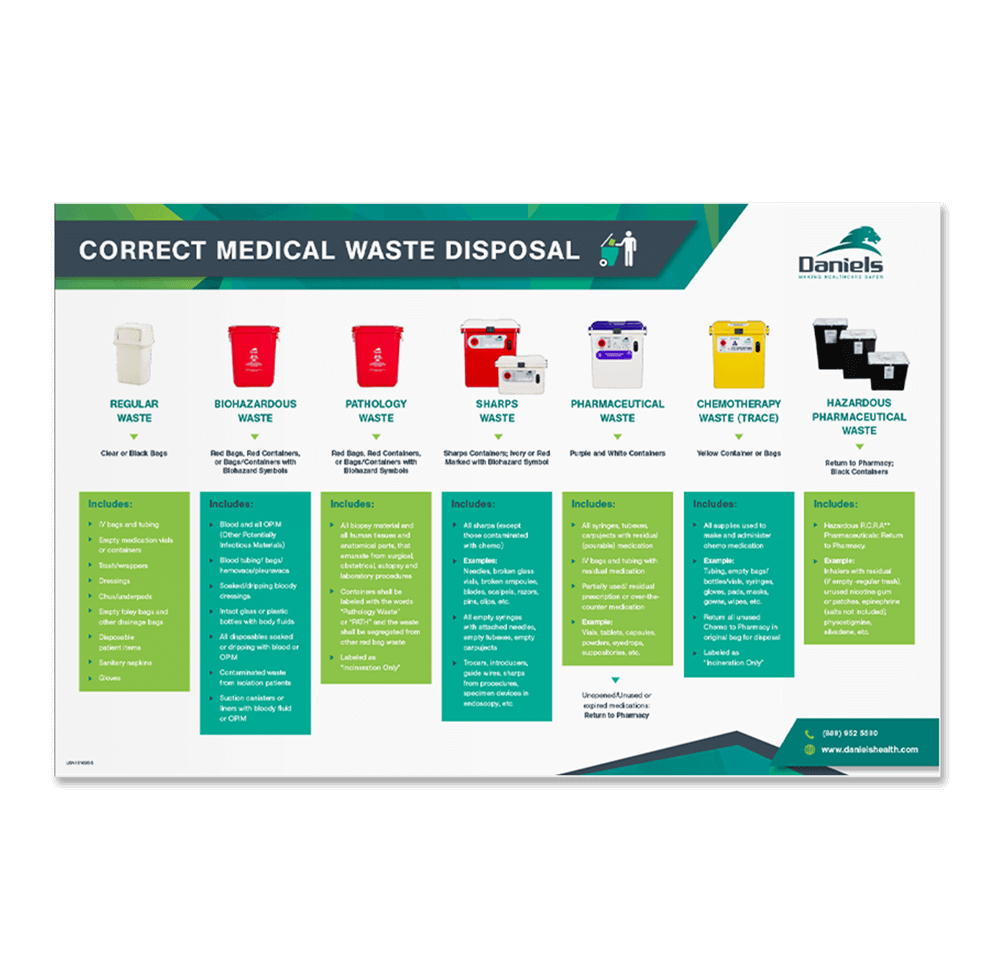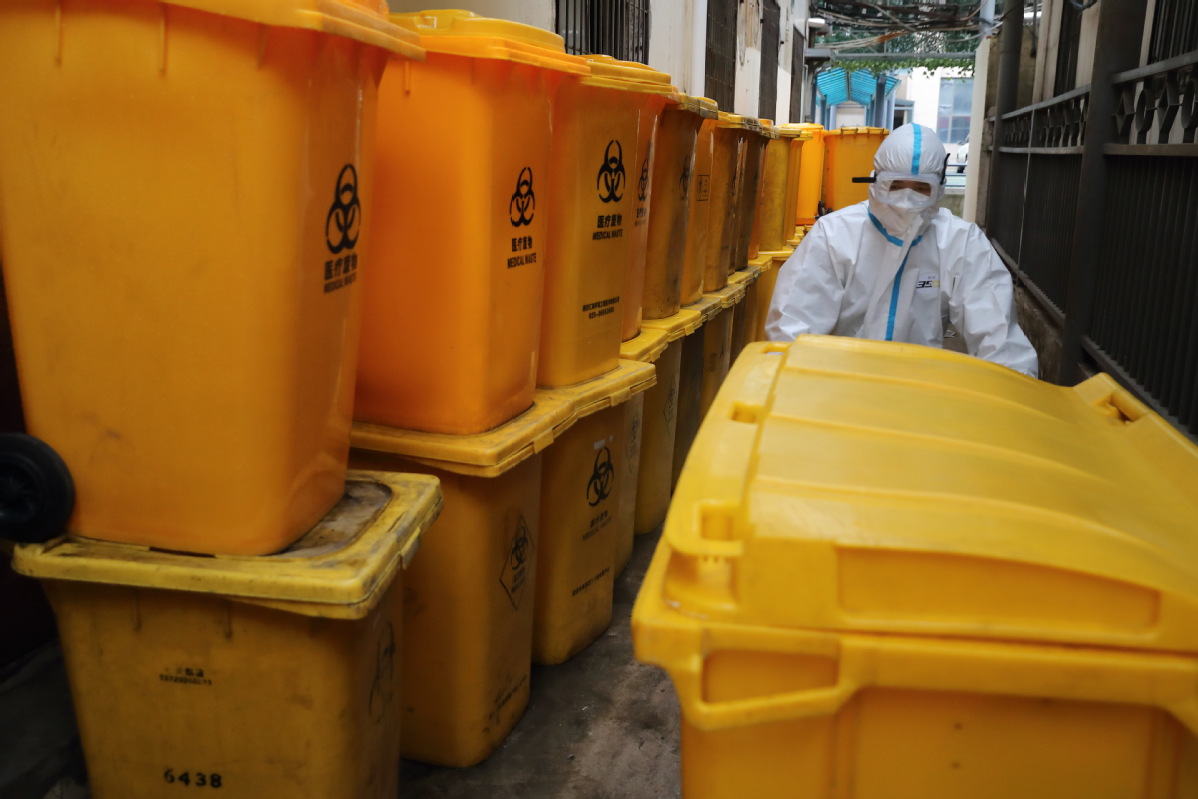Navigating Medical Waste Disposal: Essential Solutions for Medical Care Facilities
Medical care centers, whether big medical facilities or little clinics, are handed over with the responsibility of handling, dealing with, and disposing of a large variety of clinical waste streams. Understanding the important solutions that support clinical waste disposal is not just an issue of conformity but additionally a fundamental component in guarding public wellness and environmental health.
Regulatory Compliance Assistance
For medical care centers, making certain governing conformity support is important to keep correct handling and disposal of medical waste. Abiding by laws established forth by companies such as the Environmental Defense Firm (EPA) and the Occupational Safety And Security and Health Management (OSHA) is crucial to avoid ecological contamination, safeguard public wellness, and avoid potential legal consequences. Regulatory conformity assistance provides health care facilities with assistance on how to appropriately set apart, store, transport, and deal with different kinds of medical waste based on neighborhood, state, and federal policies. This assistance includes aid in developing and implementing comprehensive waste management plans, conducting normal staff training sessions, and carrying out audits to make sure continuous compliance. By partnering with governing compliance experts, healthcare centers can stay current on evolving guidelines, mitigate threats related to inappropriate waste disposal, and ultimately add to a much safer and extra lasting atmosphere for all.
Waste Segregation Advice

Healthcare centers need to provide clear guidelines and training to staff on just how to set apart waste successfully. This includes dividing basic waste from hazardous materials such as sharps, infectious waste, drugs, and chemical waste. Color-coded bins, tags, and signs are frequently made use of to help in waste partition practices. Routine audits and surveillance of waste segregation procedures are vital to determine any problems and make necessary renovations.
Collection and Transportation Providers

Proper collection and transportation services are important components of the clinical garbage disposal process in health care facilities. These services make sure that dangerous products are managed safely and in conformity with regulations to shield both the atmosphere and public wellness. Health care facilities depend on specialized waste management business to offer effective collection and transportation services tailored to their requirements.
Medical waste collection includes segregating different kinds of waste at the point of generation, making use of color-coded bags or bins to distinguish between general, unsafe, pharmaceutical, and other waste streams. As soon as collected, the waste is transported in specialized cars equipped to deal with dangerous products securely.
Treatment and Disposal Solutions
In the world of medical garbage disposal for healthcare centers, after the vital phase of collection and transportation solutions, the focus shifts towards implementing efficient treatment and disposal solutions. Therapy services commonly include processes such as autoclaving, which utilizes steam under stress to sanitize the waste. This approach is generally made use of for contagious waste that has to be rendered non-hazardous prior to disposal. Another widespread therapy technique is incineration, where waste goes through heats in controlled setups to decrease its volume and get rid of virus.
Disposal services include the last action in the medical waste monitoring procedure. Facilities might decide for land fill disposal, where treated waste is thoroughly deposited in marked locations. Medical Waste Disposal Services. Additionally, healthcare facilities can choose to utilize waste-to-energy facilities, which incinerate waste to create electrical energy. Recycling and source healing are likewise gaining grip as sustainable top article disposal options for sure sorts of medical waste materials.
Reliable treatment and disposal options are vital in guaranteeing compliance with policies and securing public health and the setting. Medical care facilities have to very carefully examine and select proper approaches that line up with their waste monitoring goals and sustainability initiatives.
Team Training and Education And Learning

To efficiently manage medical waste disposal in health care facilities, thorough team training and education play an important duty in making sure adherence to regulatory requirements and keeping a secure setting. Appropriate training furnishes personnel with the understanding and skills required to deal with different sorts of clinical waste, segregate them properly, and package them firmly for disposal. By informing workers on the dangers related to improper handling of clinical waste, facilities can minimize the probability of accidents, contamination, and regulatory offenses.

Final Thought
In final thought, health care centers rely on necessary medical garbage disposal services to make certain regulative compliance, correct waste segregation, safe collection and transportation, reliable treatment and disposal, as well as personnel training and education and learning. These solutions play a vital duty in keeping the wellness and safety and security of both health care employees and the public, highlighting the significance of proper administration of clinical waste in health care settings.
For healthcare facilities, ensuring regulative conformity try this out support is important to maintain proper handling and disposal of medical waste. Waste segregation involves categorizing different types of clinical waste to guarantee appropriate handling, treatment, and disposal. This consists of dividing general waste from dangerous materials such as sharps, transmittable waste, drugs, and chemical waste.Clinical waste collection includes segregating various kinds of waste at the point of generation, using color-coded bags or containers to distinguish between general, dangerous, pharmaceutical, my blog and other waste streams.In the realm of medical waste disposal for medical care centers, after the critical stage of collection and transportation solutions, the emphasis moves towards executing reliable therapy and disposal solutions.